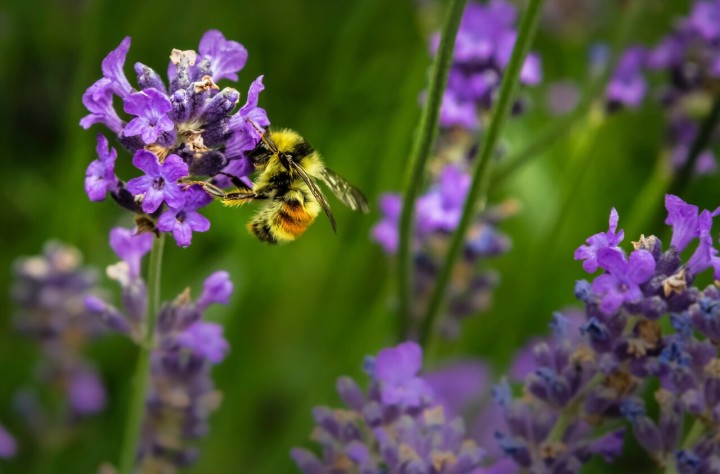
What’s your favourite bee fact?
When bees find good foraging ground, they communicate the location by doing what’s called a waggle dance. This directs the bees using the sun as a reference point.
Bees love voraged plants to feed on. Voraged plants can reproduce their nectar every 10 minutes so it’s a favourite plant for them. Comfrey plant reproduces its nectar every 20 minutes, so that would be a good one too. Dandelions are also good for them at this time of year.
What would make your garden more friendly to bees?
They like open flowers or clusters of little ones like lavender. They seem to like weeds – wild things that grow.
Listercians, they love them. A lot of old fashioned flowers, cottage garden flower. They love the flowers on sage, anything that goes to seed for instance leeks that have gone to seed because it’s like a big ball of flowers. They like things like hollyhock and poppies too.
There’s lavender in the Richmond Barracks garden too, so you could get lavender honey. [The flowers the bees take nectar from will affect the taste of the honey.]
How much honey do bees produce?
It depends on the weather and the run of food for the bees and whether it’s a strong hive.
"A bee in its lifetime only produces an eighth of a teaspoon of honey. So you’d need eight or 10 bees to get a teaspoon of honey."
What type of bees are in the Richmond Barracks hives?
They are a local bee, Apis mellifera – honey bees.
The males don’t contribute anything much in the hive apart from maybe cooling the hive down with their wings. They die after they mate, and if they’re still there at the end of the summer, just before the hive goes into hibernation, they’re generally pushed out.
How can you safely visit the bees?
Keep your distance, you can stand by the hedge and look at them from a distance and they won’t bother you. But I wouldn’t go any closer unless you’d like to get stung.
They have bees on guard, they’re keeping out wasps or other bees that didn’t belong in the hive in case they were trying to take their food.
Huge thanks to Joan for chatting with us and sharing some of her bee facts. We’re really looking forward to the time when we can welcome you all back to the Richmond Barracks garden, where you can admire some of the lovely flowers, just like the bees!
Note: This interview was condensed and edited for brevity.

